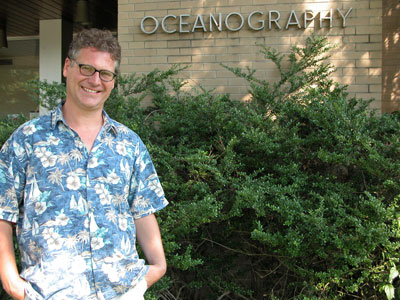

 |
 |
Richard SeagerLamont-Doherty Earth Observatory of Columbia University104D Oceanography PO Box 1000 / 61 Route 9W Palisades, NY 10964-8000 Phone: +1 845 365-8743 Fax: +1 845 365-8736 Email: seager@ldeo.columbia.edu
Publications
|
Research Interests:Climate variability and climate change, tropical atmosphere-ocean interaction, climate modeling, atmosphere and ocean dynamicsI am currently a Doherty Senior Research Scientist at Lamont Doherty Earth Observatory of Columbia University in Palisades, New York. I gained my undergraduate degree at Liverpool University in England and came to the United States in 1983 as a graduate student at Columbia. My Ph. D work was completed in 1990 under the supervision of Professor Mark Cane and Dr. Steve Zebiak and involved using tropical atmosphere and ocean models to understand key features of the tropical climate. In 1991-2 I completed a postdoctoral appointment at the University of Washington before returning to Lamont, this time to stay. Throughout my career I have used numerical models, observations and proxy reconstructions of past climates to understand the physical mechanisms responsible for climate variability and change on seasonal to glacial-interglacial timescales. I have a particular interest in how the variation of the tropical atmosphere-ocean system organize climate on a global scale. I have also studied the reasons why the mean climate of the planet is the way it is why Europe has mild winters, why there is a tropical Pacific warm pool, why there are subtropical anticyclones etc. My recent work has focused on the mechanisms of persistent North American drought and its relation to tropical Pacific and tropical Atlantic Ocean temperature variations. This work has led me into studies of Medieval megadroughts in the American West and studies of the hydrological future of the West. |